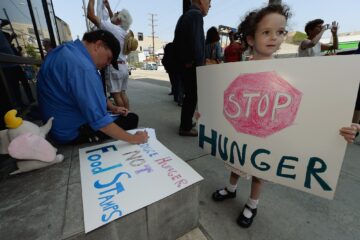By Celeste Dorantes
History of Exclusion
In 2012, the Obama Administration announced the Deferred Action for Childhood Arrivals (DACA) program. DACA has allowed hundreds of thousands of young people to work and live in the United States without fear of deportation—including becoming our teachers, health care providers, and caregivers.
Yet, due to restrictive policies, they have been almost completely barred from purchasing health coverage and accessing federal public benefit programs. The Personal Responsibility and Work Opportunity Reconciliation Act (PRWORA) of 1996 prevented lawfully present immigrants, including deferred action recipients with DACA, from accessing Medicaid, CHIP, SNAP, and other public benefits.
Those restrictive policies set a dangerous precedent in excluding immigrants from federal policies, including barring DACA recipients from further care. When the DACA program began, recipients were explicitly excluded from being able to purchase health plans on the Affordable Care Act (ACA) Marketplace.
Since the inception of DACA in 2012, more than 800,000 DACA recipients have been barred from coverage through the ACA.
>>Click below to access the full fact sheet


